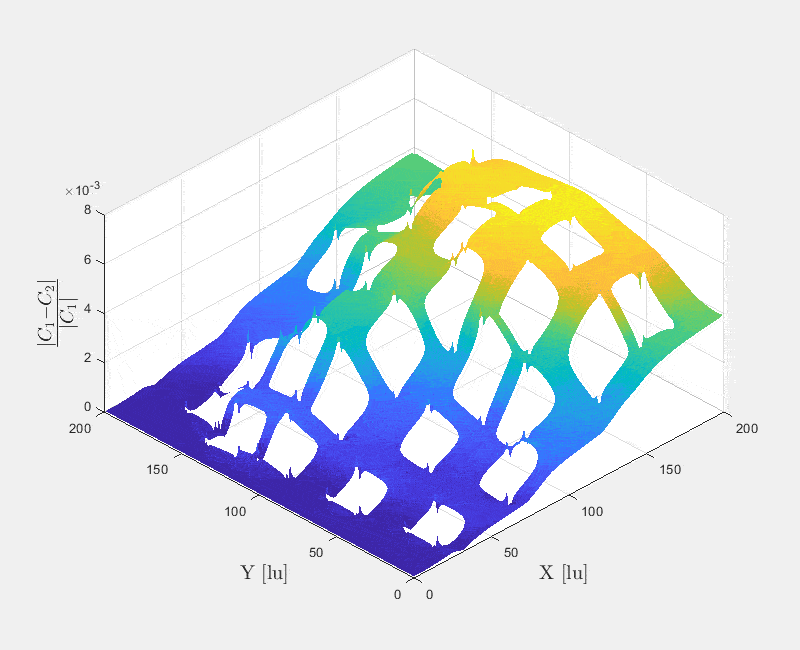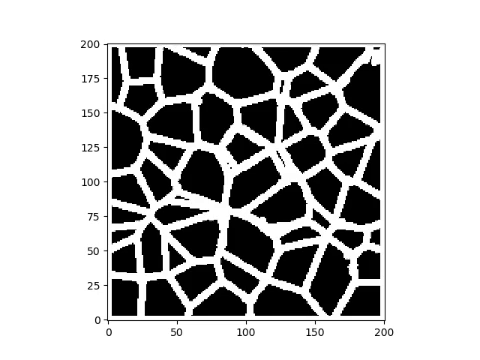Hydrogen and Fuel Cells
The current situation of the world faces challenges in several areas, including energy generation and storage in conjunction with sustainable environmental development. In contrast to some current options including hydrocarbons and electric batteries, the alternative use of clean energy is based on fuel cells and hydrogen as an energy carrier. These devices work with a continuous supply of a fuel and oxidant that, thanks to internal chemical reactions, generate electrical energy and water as a result. One of the most common examples and that is currently studied in Lab-FREE (Laboratory of Renewable Energy sources Espol), is the Polymer Electrolyte Fuel Cell (PEFC).
Theoretical Studies – An Approximation to the reality
One of the fields studied by the Fuel Cell research team is the simulation of transport phenomena that occur during the performance of a device using 2D and 3D programming. Some of the included topics are comparisons of mass transport with different schemes in porous media, variation of morphological configurations in the cells and heat transport phenomena models applied to the different fuel cell layers. The Lattice Boltzmann method (LBM) is widely used in our modeling studies. Several diffusion parameters are analyzed under different morphologies.


Experimental Studies – Approaching the reality
Due to the importance of the performance of the Fuel Cells under different conditions, multiple experiments and measurements are carried out in Lab-Free to test the efficiency of this type of devices by varying different parameters at the same time. Some of our tests force Fuel Cells to operate under different temperatures, humidity, fuel concentrations, among others. The objective is to find the best configuration of elements that can bring in the highest fuel cell efficiency.
Development of Components – Inside the Fuel Cell
In response to the need to improve the materials used in the Fuel Cells, our team works on developing new combinations to use composite materials in our devices. At the time, we are focused on improving the mechanical and electrical properties of bipolar plates. Tests are carried out with polymers and carbon compounds to be used in Fuel Cell Stacks. This process is supported by computational models to predict the possible characteristics to be obtained.
Current Projects
- Development of PEM type Fuel Cells Battery (PCC) prototype for non-stationary uses.
- Multi scale/phase coupling by modeling and experimentation in Fuel Cells ("Koppling av flerskalig modellering och experiment med fokus på bränsleceller")
Key Words
Fuel Cells, Hydrogen, Transport Phenomena, Diffusion Parameters, Mechanical Properties, Electrical Properties.
Contact:
Mayken Espinoza-Andaluz, Ph.D.
If you have an idea do not hesitate to contact me: Email: masespin@espol.edu.ec
Phone: 042269367
Publications: https://scholar.google.com.ec/citations?user=3Cs8gFgAAAAJ&hl=en&oi=ao
